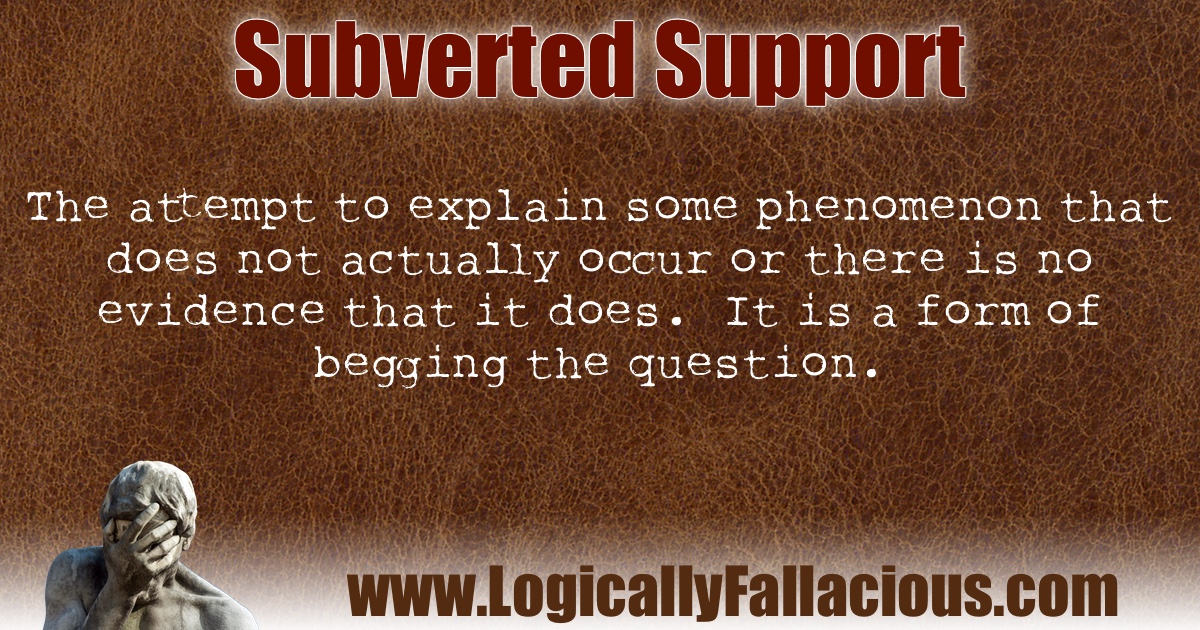Description: The attempt to explain some phenomenon that does not actually occur or there is no evidence that it does. It is a form of begging the question.
Logical Form:
X happens because of Y (when X doesn’t really even happen)
Example #1:
The reason billions of children starve to death each year is because we live in a world that does not care.
Explanation: Billions of children don’t starve to death each year -- not even close. If it were close, it might be better categorized as an exaggeration, but this would be more of an attempt to get the audience to accept the assertion as a fact while focusing more on the reason rather than the assertion itself.
Example #2:
The reason the firmament, a tent-like structure that kept the “waters above” from flooding the earth as described in the Bible, is no longer there today, is because it was destroyed during Noah’s flood.
Explanation: The reason the firmament isn’t there today is because it never existed. To attempt to explain it is to get the audience to assume it existed.
Exception: If the argument is preceded with a declaration that the phenomenon does occur, then what would be the subverted support is simply a reason given.
The firmament, a tent-like structure that kept the “waters above” from flooding the earth as described in the Bible, once covered the earth. It is no longer there today because it was destroyed during Noah’s flood.
Tip: Exaggeration is a risky technique you want to avoid. On the one hand, it can make your argument more compelling (technically, by misrepresenting the truth). On the other hand, if you are called out for your exaggeration, it will damage the credibility of your argument as well as your own credibility.

This a logical fallacy frequently used on the Internet. No academic sources could be found.